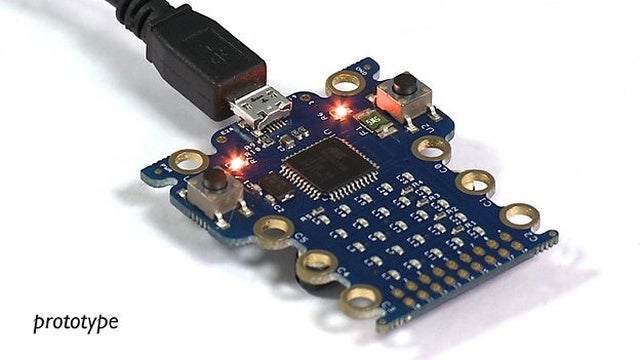
In the early '80s, the state-sponsored British Broadcasting Corporation decided that computers were going to be kind of a big deal, and created the BBC Micro desktop PC to promote computer literacy. Now, they're doing it again—this fall, one million UK schoolkids will receive a free Micro Bit.
This time, we're not talking about a Commodore 64-style keyboard PC, though. The Micro Bit is more like a Raspberry Pi. It's a tiny computer roughly half the width of a credit card—according to Wired—that will house a low-power ARM Cortex-M0 processor, Bluetooth, inertial sensors, and the ability to display simple messages with an embedded grid of 25 LED lights. It's got a micro-USB port for programming it from a normal PC, a watch battery for power, and even a safety pin on the back. After all, the BBC's calling it a "wearable device."
The idea is that if one million 11 to 12 year olds receive this device... and some of them are inspired to code... it could help make up for a projected shortage of digital skills in the UK. You know how some US politicians talk about our upcoming STEM (Science, Technology, Engineering and Math) skills shortage? Same thing.








